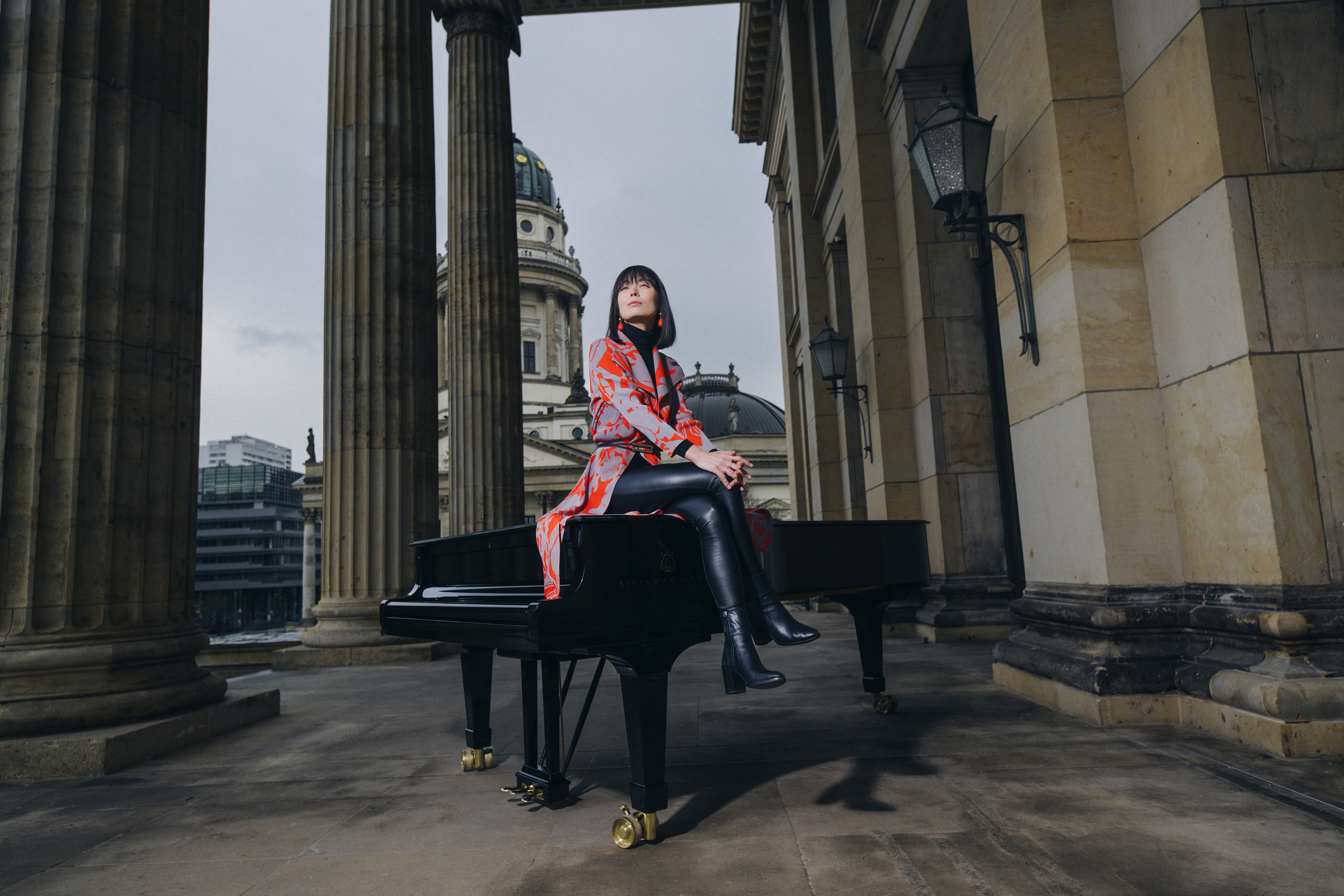11.00 Uhr
cappella academica, Christiane Silber
 Alice Sara Ott im Klavierlager © Simon Pauly
Alice Sara Ott im Klavierlager © Simon Pauly
We are looking forward to welcoming the pianist as our new Artist in Residence and asked her about her 2025/26 season with us.
I lived in Berlin for seven years and during this time I often enjoyed going to the Konzerthaus, which I particularly appreciated for its varied and innovative programmes. The fact that it is so centrally located and easily accessible is also a very important factor for the cultural life of the city of Berlin. Having spent an important part of my life in Berlin, this city means a lot to me, and I am delighted to be returning to the home of my 20s for this special occasion.
Berlin is the only place in Germany where I am not asked where I come from. For someone who hears this question every day in her own country of origin, the mere fact of not having to constantly justify her appearance means a feeling of acceptance and belonging.

Bryce Dessner is a musician and composer, whose work I have long admired, and I was of course delighted when he agreed to write a piano concerto for me. It is the first time that a composer has written a concerto for me. The close exchange with him during the development process was an exciting and enriching experience.
The concerto is dedicated to his sister Jessica, a dancer and choreographer. All three movements are strongly characterised by dance, rhythm and physic expression. It is also a physically challenging piece for me - there are less than 20 bars in which I can pause. By now I have played the concerto several times. It gives me great pleasure to keep discovering new aspects of it and to keep exchanging ideas with Bryce about interpretation and small adjustments.
Joseph Haydn was fondly called ‘Papa Haydn’ by his fellow musicians and contemporaries, whose style not only influenced is own, but also many subsequent generations. This programme is a homage to Haydn and his contemporaries in the style of ‘Hausmusik’ - a contrast to the often formal and absolute performance practice in the concert hall. It brings together songs, chamber and ensemble works by Haydn, Mozart, Pleyel and Carl Philipp Emanuel Bach. Through the flowing transitions between matching and contrasting pieces, I would like to invite the audience to imagine how this music was once experienced in a private circle of friends.

In addition to the concerts already mentioned, I am also looking forward to my recital at the Konzerthaus. I will be juxtaposingthe contemporaries Ludwig van Beethoven and John Field, the inventor of the Nocturne, and will not only musically illuminate the similarities and differences, but also host the
programme. A collaboration with an institution such as the residency gives me the opportunity to put myself artistically in different positions and to get to know the people who shape and help shape the institution and thus Berlin's culture, as well as to experience their community . And of course I'm really looking forward to the projects with the Konzerthausorchester and Joana Mallwitz. I met Joana over 20 years ago at a piano competition in Nuremberg. I really admire what she stands for, both musically and socially. It therefore has a very special meaning for me to be able to work and make music with her in this setting.
When you see what is happening in the world and feel how democratic values are dwindling and social divisions are increasing in Germany too, I hope that we finally understand how important it is to invest in the preservation and further development of a ‘Kulturstaat’. Where else, if not in culture, do we find places for people to come together to experience something in community and unite in the art of listening?